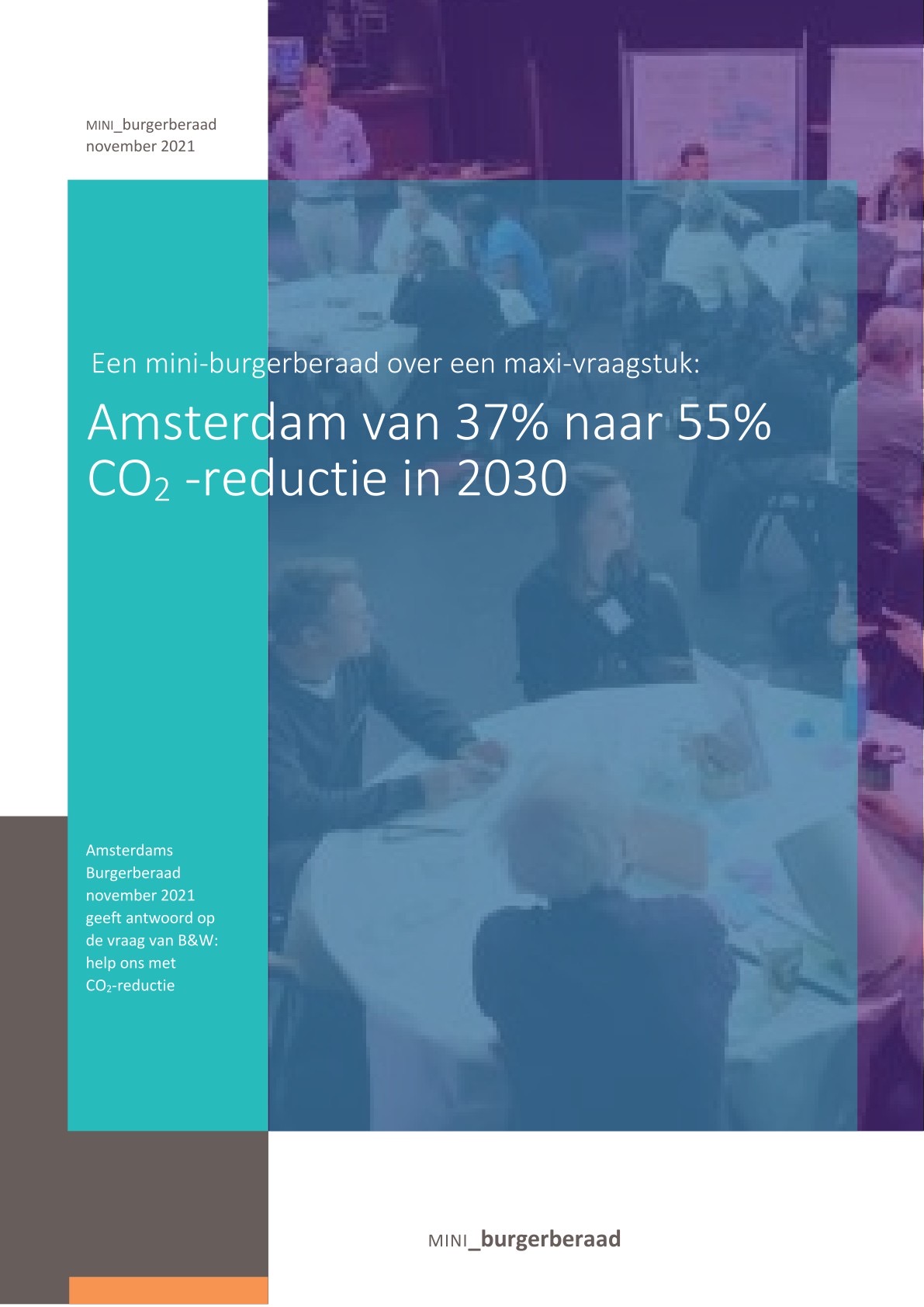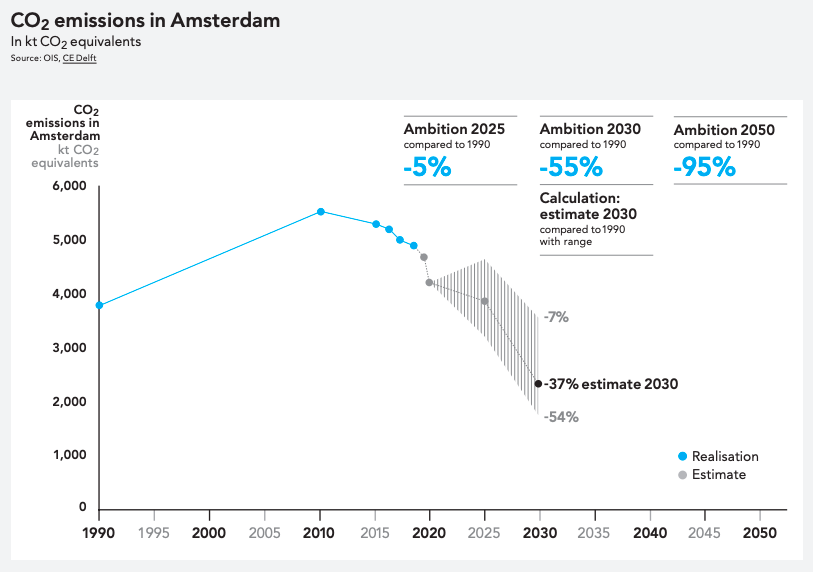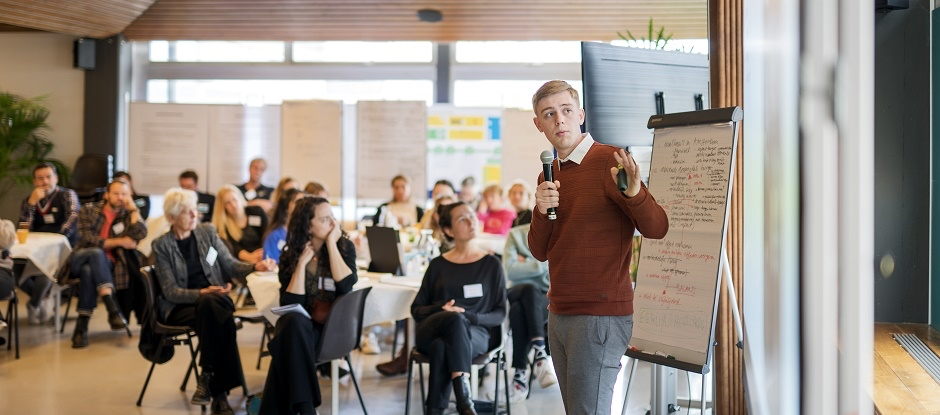In 2021, it became clear that additional measures are needed to achieve the 55% CO2 reduction in 2030 in Amsterdam, instead of the forecast of 37%. To take action, the Amsterdam municipality organized a mini citizen consultation to advise on extra measures to meet the city’s climate goals. Mid-November, a selected citizens assembly handed over their advice with 26 concrete proposals to the Alderman for Spatial Development and Sustainability.
Citizen consultation
More than 2,000 residents, drawn by lot, received an invitation from the municipality. Of these, 240 have registered. Ultimately, 100 residents were able to participate in the citizens’ consultation and 81 participants went through the entire process. Together with independent experts and a moderator, the participants met 5 times in November 2021. They were intensively informed about the subject before diving into the discussions. The participants contributed ideas in advance about the information they found necessary to have the sufficient knowledge and be inspired. That is why 5 speakers were invited and an open call was also made to inform the participants about CO2 reduction. An independent consultancy (Berenschot) provided substantive support and calculated the CO2 profit that can be achieved with the discussed measures.
Lessons and next steps
The Municipal Executive has indicated that they want to adopt the recommendations if they meet the pre-agreed conditions and will submit them to the Council. Ultimately, the Municipal Council has the vote, but the citizens’ assembly may indicate what it expects from the council.
In the advice report, the chairman compliments the participants with the result of high standard proposals. But this result has only been achieved with hard and intensive cooperation, in which it is experienced that effective citizens’ assemblies have both highs and lows. The highlight is the great pass it gives to deepen the Amsterdam CO2 policy and the good cooperation in the various phases of the citizen consultation. The downside was the large time pressure and the doubt and uncertainties for a number of participants that resulted from this.
But the citizens’ assembly is convinced that with the presented proposals, Amsterdam can increase and accelerate CO2 reduction. Their advice: Try to break through traditional routines and ways of thinking. Involve those involved as early as possible; start, experiment and learn. Many citizens like to think along with a positive attitude: use that energy in the city, because it is an important source of energy for the energy transition.

A selection of proposals
- Plant a new 1,000 hectares large, fast-growing, multi-functional forest before 2025, where residents and companies are able to participate financially and in ownership (11 kilotons of CO2);
- Make use of (more) geothermal energy (22 kt CO2);
- Install funds for making homes and businesses more sustainable and investment in rental homes and businesses: the municipality pays through a loan all sustainability costs. Repayment via saving in energy costs after the rebuilding (69 kt CO2);
- Installing a heat network takes time, to accelerate sustainability:
- a) provide hybrid heat pumps and insulation per district and
- b) accelerate the implementation of the heat network (63 kt CO2);
- Create ‘social energy’ for the energy transition among residents with a climate mayor, climate council, climate coaches and “climate buddies”. Offer support to citizens who wants the make their own environment more sustainable (no direct CO2 gain, but support transition).
A summary of the full list of proposals can be found here:

2nd Climate Report
This month, the Amsterdam sustainability department will publish their 2nd annual Climate Report after their Climate Neutral Roadmap (city vision 2050) is launched. The report monitors all the actions that contribute to reducing the city’s CO2 emissions. It looks back on the progress with implementing the roadmap based on indicators (including emissions) and the measures taken. It also looks ahead with new targets, a new prognosis for 2025 and an updated prognosis for 2030. The min-citizen consultation was organized to contribute to the extra measures needed to achieve the target of reducing CO2 emissions by 55% by 2030.
The 2nd Climate Report will be published soon at the website of the Municipality: https://www.amsterdam.nl/en/policy/sustainability/policy-climate-neutrality/
The advice report (eindadvies mini-burgerberaad) and attachments of the mini-citizens’ assembly can be downloaded in Dutch at the website of the municipality: www.amsterdam.nl/wonen-leefomgeving/duurzaam-amsterdam/mini-burgerberaad/
Video reports of the consultation meetings are available on Vimeo: https://vimeo.com/user155680690
Image credits: Municipality of Amsterdam, CE Delft / Amsterdam OIS: Research, Information and Statistics
